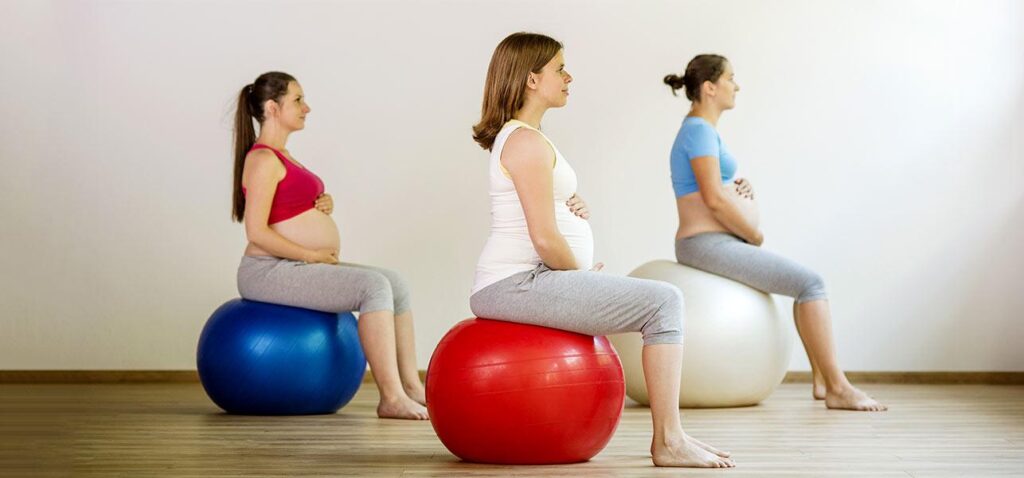Do Pregnant Women Need to Exercise? Expert Advice 2023
Maintaining an active lifestyle during pregnancy is essential, and healthy expectant mothers are recommended to engage in at least 2½ hours of moderate-intensity aerobic activity per week.
By participating in aerobic exercises that elevate your heart rate and induce a healthy sweat, you can ensure both your cardiovascular health and overall well-being are prioritized throughout this beautiful journey.
Pregnant women’s exercise contributes significantly to maternal and fetal well-being during pregnancy. Historically, women were advised to refrain from exercise during pregnancy in many cultures. Newer evidence has shown this to be false. Physical activity is necessary.
You cannot expect an athlete to run a marathon without training. Similarly, labor and childbirth are hard work that requires great physical shape and endurance. Expecting moms should remember that and try to be fit throughout the pregnancy. They need to follow an exercise program.
- Walking is a safe activity to engage in during pregnancy.
- Activities that involve being in the water, such as swimming and water workouts.
- Engaging in stationary cycling.
- Classes for Yoga and Pilates are available.
- Low-impact aerobics classes involve keeping one foot on the ground or equipment at all times.
- The activity of training for muscular strength.
What are the Benefits of Exercising During Pregnancy?
Based on the most recent evidence, exercise during pregnancy is associated with the following:
- Higher cardiorespiratory fitness.
- Prevention of urinary incontinence and low back pain.
- Reduced symptoms of depression.
- Better gestational weight gain control
How to Exercise During Pregnancy?
The intensity should be mild or moderate for previously sedentary women and moderate to high for active women who are used to going to the gym. It is recommended to exercise at moderate-intensity, low-impact, aerobic exercise at least three times a week.

Lower-body and pelvic floor exercises can also be helpful in reducing pregnancy-related pain, in addition to the abdominal exercises mentioned previously. Pelvic floor exercises are generally safe to perform these exercises during pregnancy. Be careful if you have pelvic pain.
Common examples of such activities are walking, cycling, using steppers, ellipticals, swimming, aerobic dance, and yoga. Even counting the steps is considered aerobic exercise. Newer studies suggest the progressive addition of vigorous exercise (exercising vigorously enough to elevate one’s heart rate to approximately 110-120 beats per minute) and light strength training to the workout routine of healthy pregnant women.
What to Watch Out for While Exercising

- Pregnant women should avoid overheating. It is advised to wear appropriate clothes and temperature-controlled premises, especially in a hot climate.
- You should avoid dehydration by drinking water before, after, and throughout the regular exercise.
- If you want to cycle, use only a stationary bike to avoid injury.
- Don’t take plenty of water during exercise.
- Always prefer moderate exercise. Hot yoga can not be good for every pregnant woman.
What Kind of Exercise is Better to Avoid?
- Any contact sport such as martial arts, boxing, basketball, volleyball, soccer, or sport that can cause significant injury like horseback riding or hockey.
- Any activity that is linked to altitude changes such as skiing, skydiving, or scuba diving should be avoided during pregnancy.
- Avoid riding the bicycle. Cycling must be done only on a stationary bike to avoid possible injury.
- It is better to avoid running as well. Don’t carry extra weight during exercise.
When is it Forbidden to Pregnant Women Exercise?
It is forbidden to exercise during pregnancy when such complication arises:
- Placenta previa
- Incompetent cervix
- Vaginal Bleeding
- Preterm premature rupture of
- Membranes
- Chest pains
- Threatened preterm labor
- Significant heart or lung disease
- Preeclampsia
- Severe anemia.
An insight from Mamahood
Exercising during pregnancy is important for your body to prepare itself during the labor. It will help to strengthen your muscles, decrease your chance of complications, and prepare your body for childbirth. If you have any doubt regarding your specific limitations, please consult your doctor who knows you best and will be able to assess any potential risks.








